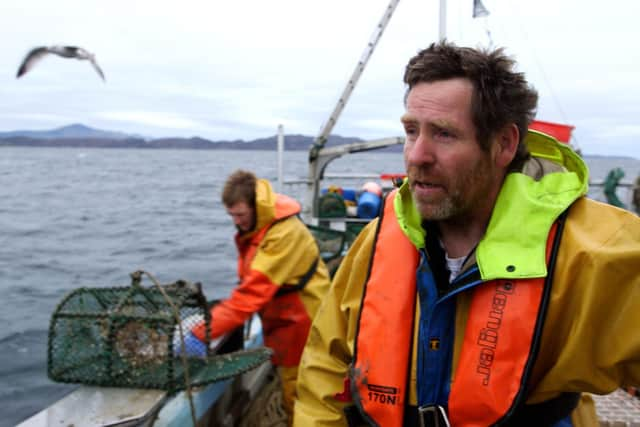New row erupts as Scottish ministers announce U-turn over Clyde fishing ban
They say the new rules are “completely unreasonable” and effectively grant access to the most damaging fishing activities while excluding the least impactful.
A seasonal ban on fishing has been in place for more than 20 years to protect the fish during their spawning season in the Firth of Clyde.
Advertisement
Hide AdAdvertisement
Hide AdSince its introduction in 2001, there have been exemptions that allow prawn trawlers, creelers, scallop dredgers and divers to continue to fish in the closure areas, due to the low numbers of cod they catch.


However, last month the Scottish Government announced “a change to our previous position”, ruling there would be no exemptions during this year’s 12-week closure because cod have shown little sign of recovery.
The move sparked strong reaction from some of Scotland’s fishing fleet.
The Scottish Fishermen’s Federation (SFF) said the measures were “devastating news for those who make their living fishing in the Clyde”.
Now, after a further change of plan, ministers have said the ban will be “more focused and targeted”, opening up nearly a third of the prohibited area.
The area exempted is prime trawling territory, meaning creelers and divers will be unable to fish there due to gear conflict issues and water depth.
Bally Philp, national co-ordinator for the Scottish Creel Fisherman’s Federation (SCFF), said: “Because it’s physically not possible for static gear and mobile gear to fish in the same place at the same time, and because the new area is dominated by trawlers, this mitigation of opening up some more areas to fishing will only further exacerbate this disproportionate situation where creelers and divers will be impacted more than those responsible for causing the problem.”
The group has written to Marine Scotland to question the decision.
Advertisement
Hide AdAdvertisement
Hide AdThe Our Seas coalition, which is campaigning for a historical ban on damaging fishing in inshore waters to be restored, has warned one-size-fits-all management measures could hinder habitat recovery by raising fishing activity in some areas.
Ailsa McLellan, co-ordinator for the group, said: “Since the removal of the three-mile limit on bottom trawling in 1984, the health of our in-shore ecosystem and fisheries has been in freefall.
“Excluding fishing gear from small areas with no overarching management of gear type only serves to concentrate effort elsewhere.”
She added: “The failings here are not from those asking to remove an exemption for bottom-dragged fishing gear over a cod spawning area, because these exemptions should never have been allowed in the first place.
“It is a failing of those in power to understand the varying impacts of different fisheries, and to regulate accordingly.”
SFF chief executive Elspeth Macdonald said: “While this concession by the Scottish Government may improve the situation for some of the vessels that fish in the area, our concerns about this decision remain valid.
“It was an extremely poor example of decision-making and stakeholder engagement, made without the backing of proper science.
“The way this situation was handled by the Scottish Government sets a worrying precedent, and undermines years of co-operation, engagement, constructive dialogue and an evidence-based approach between the government and industry.”
A message from the Editor:
Thank you for reading this article. We’re more reliant on your support than ever as the shift in consumer habits brought about by coronavirus impacts our advertisers.
If you haven’t already, please consider supporting our trusted, fact-checked journalism by taking out a digital subscription.
Comments
Want to join the conversation? Please or to comment on this article.
